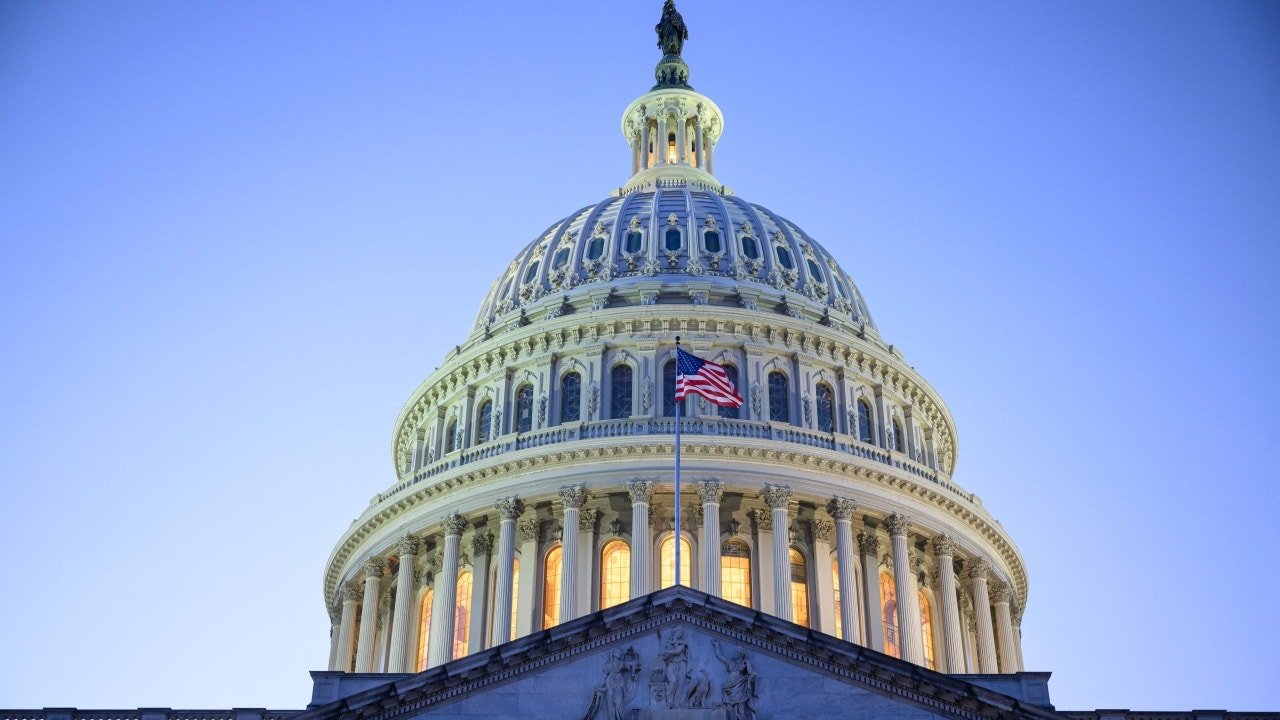U.S. National Debt Reaches Unprecedented Levels: A Call for Fiscal Responsibility
The recent news of the U.S. national debt surpassing $35 trillion is a stark reminder of the country’s ongoing fiscal challenges. Former Texas congressman Kevin Brady and former OMB Director Russ Vought recently voiced their concerns about President Biden’s spending practices, highlighting a trend that continues to escalate the already towering debt. As citizens, we must contemplate the implications of this significant financial milestone and the urgency of addressing it.
A Historical Perspective on National Debt
For context, the momentous nature of this $35 trillion figure cannot be overstated. When viewed alongside historical data, it illuminates an alarming trajectory. Just four decades ago, the national debt stood around $907 billion—a figure that now seems almost quaint when juxtaposed against today’s staggering sum. The Treasury Department’s recent data revealed that this national debt hit $35,001,278,179,208.67 on a Monday that may lead us to wonder how we reached such a monumental amount so rapidly.
The speed of this growth is striking. Maya MacGuineas, president of the Committee for a Responsible Federal Budget, noted that just seven months had passed since the gross national debt topped $34 trillion. This rapid increase is symptomatic of broader economic trends, where societal reliance on government programs, rising interest rates, and aging demographics strain the nation’s finances.
Rising Interest and Budget Deficits
As the national debt swells, the interest incurred from this borrowing has begun to eclipse core spending areas such as defense and Medicare. Interest payments are set to rise dramatically, consuming an increasingly larger portion of federal expenditures. MacGuineas’s remarks point to a looming crisis with respect to major trust funds and the absence of a coherent plan among elected leaders to tackle these pressing issues.
Currently, economists focus on the debt held by the public, excluding intragovernmental debt such as that of the Social Security trust funds. This year, the projected debt held by the public is anticipated to reach 99% of the U.S. gross domestic product (GDP). The nonpartisan Congressional Budget Office (CBO) has forecast that by 2027, this figure could soar to more than 106% of GDP. The historical perspective is sobering; the last time the U.S. encountered numbers this high was in the aftermath of World War II.
The Impact of Deficits on Everyday Americans
When discussing deficits, one cannot help but reflect on their far-reaching consequences for the average American. The current trajectory indicates this year’s projected federal budget deficit will balloon to $1.9 trillion, surpassing last year’s figures by $200 billion. For the typical citizen, these numbers may seem abstract, but the impact is highly tangible. Reduced income growth, potential tax increases, and diminished government services could weave a challenging financial landscape.
Higher interest rates compounded by mandatory spending programs like Social Security and Medicare create a feedback loop that exacerbates the fiscal situation. For many families, the specter of increased costs looms large, leaving individuals to ponder the sustainability of the American Dream amidst these financial uncertainties.
Political Challenges Ahead
As we look toward the future, significant political hurdles await. The debt ceiling, set to expire on January 1, will thrust Congress into another debate regarding raising or suspending the cap and potentially enacting substantial fiscal reforms. The outcome of this conversation will echo for generations.
In the aftermath of responses to the pandemic, which saw unprecedented spending levels leading to budget shortfalls, it’s clear that we must engage in responsible discussions centered around fiscal sustainability. The outcomes of these debates could forever alter the economic landscape of the United States.
Reflections on a Path Forward
The warnings from economists and the palpable tension surrounding the national debt create an atmosphere ripe for introspection. As citizens, we must demand accountability and proactive measures from our leaders. How will this debt be managed? What reforms will be implemented to safeguard future generations?
In this moment of fiscal reckoning, the onus falls on both politicians and the public to engage in the hard conversations necessary for pragmatic solutions. By doing so, we can lay the groundwork for a more sustainable financial future—one where the burdens of debt do not fall on the shoulders of our children and grandchildren. We must harness our collective resolve, ensuring that the alarming trajectory of our national debt becomes a catalyst for action rather than a harbinger of despair.




































